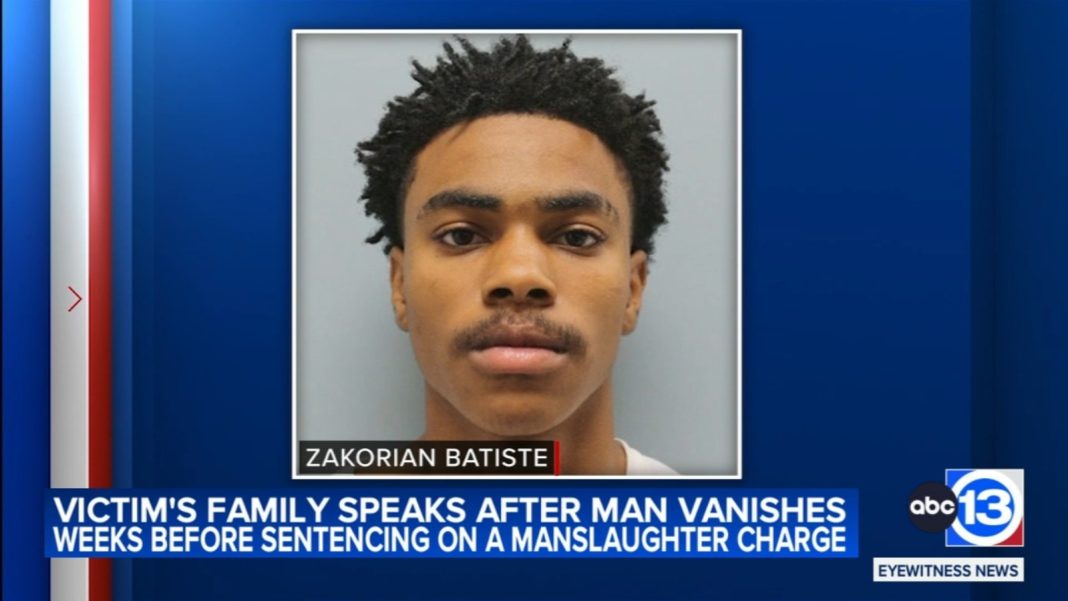In a tragic turn of events that underscores the complexities of youth crime and the consequences of gun violence, a Houston man, Zakorian Batiste, has found himself at the center of a haunting narrative following the shooting death of 18-year-old Nariah Champion. The incident, which unfolded in 2022, has left an indelible mark on Champion’s family and serves as a grim reminder of the lives shattered by reckless actions.
Nariah Champion was not just another teenager; she was an ambitious young woman with dreams of becoming a lawyer. Just months away from her high school graduation, her life was cut short due to a senseless act of negligence. According to her mother, Keisha Shields, the pain of losing her daughter is akin to an open wound that never heals. “It’s like a hurt that – it never left. It’s always there,” Shields expressed, highlighting the emotional toll that such tragedies take on families.
At the time of the incident, Batiste was only 17 years old. Police reports revealed that he had been playing with a loaded gun in a south Harris County apartment when the firearm discharged, fatally injuring Champion. This episode raises critical questions about gun safety and the responsibilities that come with firearm possession, particularly for youth.
In May, Batiste pleaded guilty to manslaughter, a decision that seemed to reflect an acknowledgment of his actions. However, his behavior following this plea has raised serious concerns. Just months after the plea, while still out on bond and monitored by an ankle bracelet, he was implicated in a robbery involving a PlayStation during a Facebook Marketplace transaction. This incident, which occurred on August 4, paints a troubling picture of a young man allegedly unable to redirect his life despite the gravity of his prior actions.
Keisha Shields expressed her frustration and disappointment, stating that she had seen the potential for trouble in Batiste’s character long before the robbery. “I was happy too because I was like, ‘Now, he’s showing his character.’ I knew all along that that was in him,” she remarked, indicating that early warning signs often go unrecognized or unaddressed.
Despite being monitored, Batiste’s ankle bracelet reportedly malfunctioned on August 26, coinciding with the revocation of his bond and the issuance of an arrest warrant. Yet, he failed to turn himself in and subsequently missed his scheduled sentencing hearing for the manslaughter charge. This absence speaks volumes about the challenges of holding young offenders accountable, particularly when they are still navigating the tumultuous landscape of adolescence.
Jonathan Champion, Nariah’s father, poignantly articulated the heartache of lost potential: “I’ll never see what she’ll be in life, and she always said, ‘Daddy, I’m going to be the one.’” His words echo a sentiment shared by many families affected by gun violence, where dreams are abruptly halted, leaving behind a trail of grief and unfulfilled aspirations.
The case has now taken a new turn, as the Harris County Sheriff’s Office reported that Batiste is back in custody. However, the system’s ability to prevent such tragedies from recurring remains a pressing concern. Experts argue that addressing youth crime requires a multifaceted approach, including better mental health support, community engagement, and stricter gun control measures.
As communities grapple with the implications of these events, the stories of victims like Nariah Champion serve as a critical reminder of the stakes involved in discussions about gun safety, youth rehabilitation, and the overall impact of violence on society. The narrative of Zakorian Batiste and Nariah Champion is not just about one tragic incident; it reflects broader systemic issues that demand attention and action to prevent future heartbreaks.


